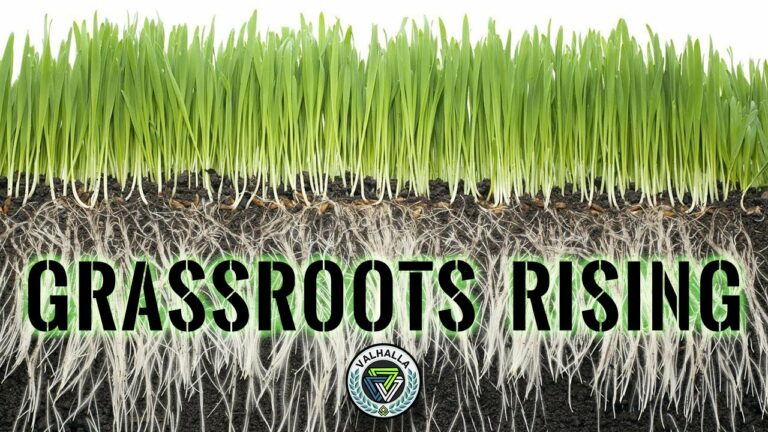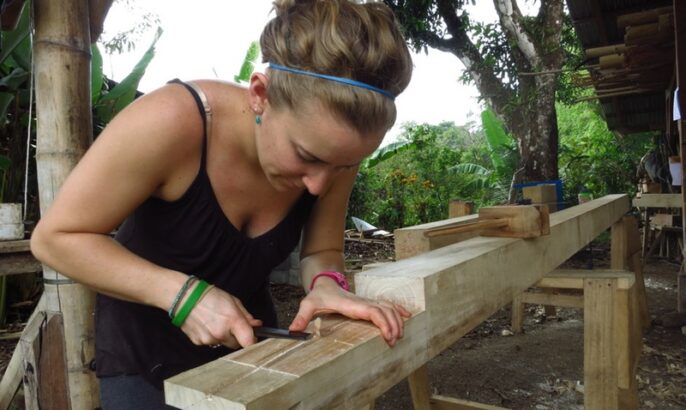Website Helps You Find Eco-Conscious Communities Around The World!
For many of us, travelling is more than simply sightseeing and visiting famous monuments. We are looking for experiences that will transform us. We want to find the real gems we don’t hear about; the projects, communities and people that are inspiring personal and global transformation. In 2013, 4 passionate nomads bound together to create a …
Medical Doctor Sells Practice, Opens Up “Farmacy” Using Food as Medicine

Dr. Robert Weiss believes that a change is coming about in the way we approach health and medicine, or rather a reconnection with knowledge that was shunned with the onset of big pharma.
He sold his practice in New York and built the first farm-based medical practice on a 348-acre farm in Long Valley, New Jersey. It can be called a “farmacy,” a place that explores and utilizes plant-based “food as medicine.”
“Plant-based whole foods are the most powerful disease-modifying tools available to practitioners – more powerful than any drugs or surgeries,” said Weiss, a doctor of 25 years in Hudson County.
Untold billions have been put into the production of synthetic chemicals to treat the symptoms of disease, yet the research of plant-based medicine has taken a back seat, despite its ancient history and already known potential.
The priority is prevention through proper diet, including fruits, vegetables, grains, nuts, beans and seeds. It’s “paleo” plus the best parts of human agriculture before they were turned into processed foods. However, this strict diet regimen can also be used to treat those already afflicted with ailments.
“I am not saying if you fall down and break your ankle, I can fix it by putting a salve of mugwort on it. You need someone to fix your fracture,” Weiss said. “I am talking about treating and preventing chronic disease – the heart attacks, the strokes, the cardiovascular disease, the cancers … the illnesses that are taking our economy and our nation down.”
He says that the nutrients in fruits and vegetables prevent inflammation, which is believed to be the cause of many chronic diseases.
Dr. Weiss said the lunch that was prepared during the interview-“a salad of baby kale, radicchio, purple carrots, cucumbers, onions and cherry husk tomatoes tossed with a walnut vinaigrette, followed by eggplant rollatini with tofu instead of cheese, and dairy-free chocolate pudding garnished with raspberries”-contains many naturally occurring drugs.
The goal is to reduce the reliance on dangerous pharmaceuticals that bring on a host of negative side-effects, addiction, and overdose death. Also, he strives to avoid, where possible, unnecessary surgeries.
Dr. Weiss points to the case of 90-year-old Angelina Rotella of West New York as model success story. On the night before Christmas Eve, she came to his office in a wheelchair with congestive heart failure.
“I asked her, ‘Do you want me to call 911 and admit you to Palisades General? Or will you let me feed you sweet potatoes and kale?’ Amazingly enough, with the help of her daughter, she chose this,” Weiss said. “She doesn’t have diabetes anymore and chronic heart failure. She is cooking, sewing and walking around town. I’m not saying it’s easy, but she seized the opportunity and she is transformed.”
The prescription was a strict diet including “grains (such as whole-grain brown rice and sweet potatoes), steamed greens (including kale and spinach), fruit (a big serving of wild organic blueberries is a must) and water.” Her daughter, Angie Rotella-Suarez, calls it “more than a miracle,” saying her mother stopped taking her heart blood pressure medication within two weeks.
The plant-based diet was so effective that Rotella-Suarez and her sister took up the same diet and lost 40 pounds, and are no longer pre-diabetic.
The farmacy already has 90 families that pay a membership fee and volunteer time picking weeds and harvesting vegetables. Part of the mission is to get people more interested in their diet through being involved in the food production.
“Human health is directly related to the health of the environment, the production of food and how it is grown,” said Weiss, who earned an undergraduate degree in botany at Rutgers College of Arts in Science in Newark. “I see this farm as an opportunity for me to take everything I’ve done all my life, all the biology and chemistry of plants I have studied, and link them to the human biological system.”
Indeed, there are more benefits to the act of growing one’s food than the we may realize. According to a scientific study, working in the garden and making contact with soil bacteria can make you smarter and happier, by triggering the release of serotonin in the brains.
Dr. Weiss is truly following the advice given by Hippocrates so long ago – “Let food be thy medicine and medicine be thy food.”
How a New Generation is Getting Their Education Abroad- Without A Tuition
A generation in search of answers
There’s long been a bug in the minds of the new generation- something doesn’t add up about the modern life path. We’ve heard it all before; spend some time in school, get a career helping some corporation produce and market some product or service, buy a house, start a family, die.
But this is the age of globalization, of the Internet- we grew up knowing that wasn’t all there was, yet still seem to be told repeatedly that it is. So some of us tried to go that route, some of us succeeded, and some of us failed miserably.
Whatever path we took, a lot of us found a large world outside of us, and it is a world in crisis. The disconnect of government and economy from the Earth has broken the cycle of life and sustainability, the oceans are warming, the forests are in decline, and many species are going extinct before our eyes.
Many of us were looking for answers, but didn’t know where to turn to get started actually helping solve those problems.
An unexpected problem
When I began looking into these problems and what to do about them, I discovered, as many others do, that the issue isn’t that nobody else cares, it’s that so many of the people working on the solutions have broken from the traditional path as well.
Solutions abound in the form of communities, projects, and educational centers- but there was no single place to discover them.
There aren’t big corporate sponsorships for eco-communities, environmental projects, and grassroots initiatives. They exist somewhere far under the radar, just above the underground. Sure, you can do some digging and find out about one or two, but there was no way to visualize the extent of what was really happening unseen all around the world.
That’s when I discovered NuMundo, and realized I was not alone with this problem.
And the more people I talked to, the more NuMundo’s solution seemed to be in high demand.
A network of solutions
There’s no end to the places willing and eager to train new environmentalists, new eco-community members, or just better people. But off-grid, rugged, down-to-earth people often make the worst marketers, and so many of these communities thrived with 20, 30, or 100 people for years or decades, never getting more than a passing glance from the mainstream society.
Some of these communities prefer the obscurity, but a great many were looking for opportunities to network closer with their brethren, and engage with more people searching for alternative ways of life.
NuMundo struck out in 2013 with the goal to make it easier for the traveling, knowledge-hungry nomad to connect with those who were looking for help, or looking to share their knowledge.
In just a few short years, they managed to generate monthly web traffic upwards of 30,000 users- bringing massive exposure to the dozens of communities they had hand-picked for cooperation.
Suddenly travelers, burgeoning environmentalists, and the curious were able to find opportunities that had so far remained obscure and hidden.
A wave of transformation was beginning- a network of solutions was born.
The value in grassroots education
When you step foot onto any one of NuMundo’s verified Impact Centers, it’s not like walking into a college, or a job. There’s no corporate culture to ingest, and codes of conduct are simple and intuitive.
Friendly faces greet you, excited to show off the tangible results of their work. A traveler is enriched with the energy of hearing passionate people discuss ambitious goals. The education is nothing a text-book could reproduce, but rather something tactile and experiential.
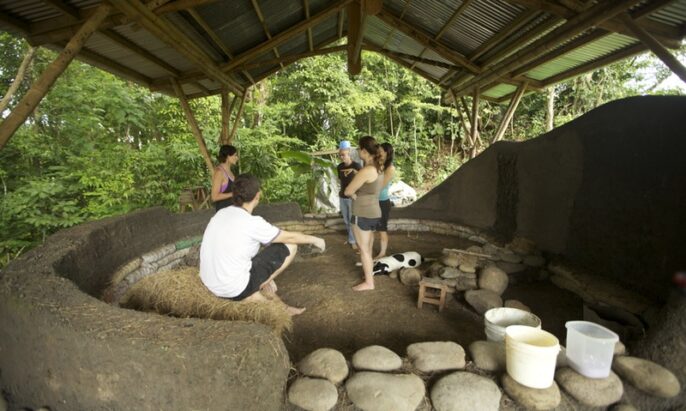
Suddenly you’re learning skills you never thought you might need, but seeing how they play out right before your eyes. You discover the ways a community can really come together, how people can live in tandem with their environments, how the world can be flipped on its head.
These communities are experts in permaculture techniques, land remediation, yoga and personal development, and embrace ecology and sustainability in their daily living. The skills which are becoming increasingly critical in a shifting world can’t be learned in a text book- they have to be learned here in the dirt.
Each Impact Center is as much an experimental potential future for society, and a school- propagating and studying the ideas that could produce a better world.
All the while you spend with one, you begin to discover things about yourself. Old dogma and assumptions are challenged left and right, your mind becomes freer as you assume a posture of curiosity and inquisitiveness.
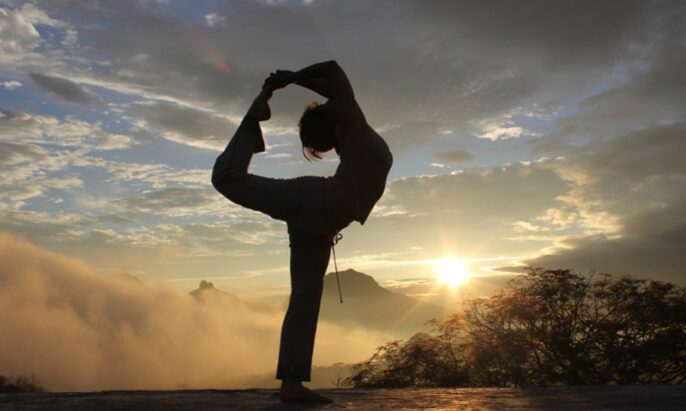
There’s no test, no grades, and no tuition.
This is the world NuMundo seeks to build– one in which people can discover new opportunities alongside learning about themselves.
A vision in need of help
With a serious lack of connection between projects that are promoting this lifestyle, NuMundo is giving the possibility for people who want to learn and create this change to find their tribe. As it continues to develop and grow, it will be easier and easier for all of us to find each other and create change on a much larger scale.
NuMundo has done an incredible amount of work since 2013 getting their network started. Between connecting with communities across several countries, developing a beautiful web platform, and running the marketing initiatives necessary to get their vision in front of people’s eyes- it’s been a full time job for a wide team of dedicated entrepreneurs.
Now they need as much help as they can get. They have the opportunity to grow their network at an incredible rate, and really open up a world of possibilities to travelers for education, experience, and personal development, but those goals cost money.
Click here to find out how to help NuMundo succeed, and how you can get connected to their vision!
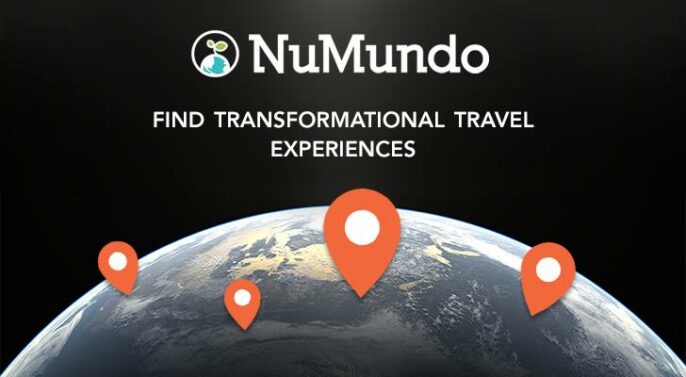
Written by Daniel Arsenault, founder of Electric In The Forest.
Ten Reasons Why Soils will Save the World
Contribute to the global effort to restore soil functions which have been destroyed CLICK HERE Healthy, fully functioning soils will: 1. Provide highly nutritious food without the use of chemical inputs. 2. Solve the health crisis through strengthening the human biome. 3. Hold huge amounts of water and so prevent the flooding …
#EarthToParis: If You Really Want To Avert Climate Disaster Then Read This
We’ve all heard of climate change. It is a natural phenomenon for climates to fluctuate and change, however, as most of us know, human caused atmospheric pollution is exacerbating the issue, accelerating the rate of change, making it’s impacts more abrupt and extreme. Climate scientists agree that if we surpass a 1.5 degree (the UN …
Lower Austria Generates 100% Renewable Energy
Solar panels are pictured on the roof of the Protestant Reformed Church in Vienna April 9, 2013. Many religions have been wary of moving to install renewable energy sources on their places of worship, from cathedrals to mosques – or of taking a strong stand on climate change in general – despite teachings that people should be custodians of nature. But slowly, that may be changing, thanks to new religious leaders including Pope Francis, the head of the Roman Catholic Church.
One of Austria’s largest states publicized that it will run on 100 percent generated electricity coming from renewable energy resources. Lower Austria will be producing power coming from hydroelectric mechanisms, wind farms, biomass, and solar panels.
Lower Austria, one of the nine states of Austria, will be generating electricity coming from renewable resources. One of the region’s main power sources will be coming from hydroelectric power plants on the Danube River.
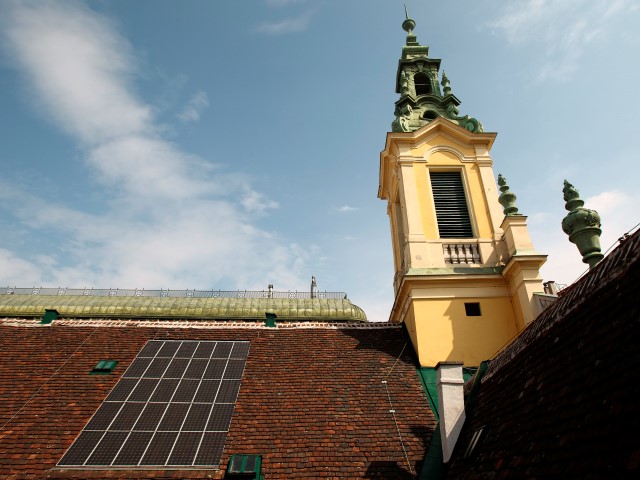
The Danube River is Europe’s second largest river. The river has aided claims of Lower Austria’s 63 percent generated electricity, which comes from hydroelectric resources. The region’s electric production is categorized as hydroelectricity, 26 percent that comes from wind energy, 9 percent from biomass, and 2 percent from solar energy.
“We have invested heavily to boost energy efficiency and to expand renewables,” Erwin Proell said, premier of Lower Austria. “Since 2002 we have invested 2.8 billion euros (US$3 billion) in eco-electricity, from solar parks to renewing (hydroelectric) stations on the Danube.”
This achievement of Lower Austria is an inspiration of hope amidst grim environmental news. This is also an evidence of how much the state has exerted to producing clean energy and diminishing carbon emissions.
As for Austria’s rest, 75 percent will be coming from renewable energy resources and 25 percent will be coming from fossil fuels. On the employment part, the country’s lower region claims to create 38,000 jobs in the renewable energy sector. The country as a whole aims to increase the total number of ‘green jobs’ by 2030 to 50,000.
Austria has been in the lead in the European region when it comes to generating electricity from renewable energy resources. Following behind are Denmark, Latvia, Portugal, and Sweden.
As part of a European clean energy ecosystem, Sweden has announced its aims of becoming the world’s first fossil fuel-free country. On the other hand, Denmark is enjoying its success in generating renewables through wind energy. Elsewhere, Norway is banning cars from its capital city to reduce carbon emissions in half.

